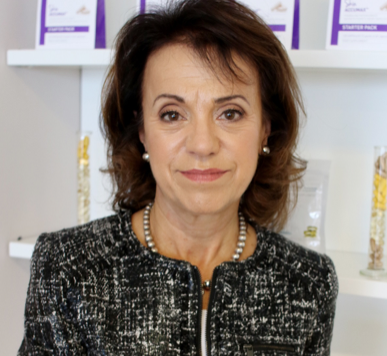Guest blog: using a multi-pronged approach to treating acne
Advanced Nutrition Programme brand manager Lorraine Peretta discusses the importance of both topical and nutritional treatment for acne
Problematic or acne-prone skin is probably the most difficult skin condition for beauty therapists to address.
With four out of five people between the ages of twelve and twenty-five suffering from breakouts, it is the most commonly suffered skin condition. Therapists are now reporting that more and more menopausal women are seeking a solution too.
However, treating a condition with so many contributing factors has presented a big challenge to the beauty industry. At a basic level there are some key mechanisms underlying the acne process. They include excess sebum combined with hyperkeratinisation, plus there is a bacteria component. This can result in blocked pores, a breeding ground for bacteria causing pain, inflammation, swelling and scarring.
Several factors contribute to acne including hormones, heredity, adverse reaction to medicines and environmental factors such as pollution and humidity. Research suggests that there are various lifestyle factors such as stress, poor diet leading to nutrient deficiencies, and reactions to some foods.
More thought provoking is the fact that recent research from The British Skin Foundation showed that up to 85% of people will suffer from acne at some point in their lives and not exclusively during those younger years.
The effects of suffering from problematic skin go deeper than the surface, with 95% of sufferers reporting a dip in self-confidence, unfair treatment in the workplace, unfair treatment by staff while in education and even physical and verbal abuse by members of the public.
There is also a worrying trend towards acne-sufferers being more likely to become victims of bullying and, as a result, to self-harm. In fact, 14% report that they have at times felt suicidal.
So, what is the answer? I will explore the topic in more detail during my seminar at the Professional Beauty Show in London later this month. Topical treatments are the beauty therapists’ main method for addressing problem skin. However, when we look at the contributing factors we see that many of them are internal, such as hormones and diet.
This is why we see effective treatments coming from the medical field including Roaccutane, antibiotics and the contraceptive pill, because these work from the inside. Now the Advanced Nutrition Programme offers beauty therapists the opportunity to address problem skin with non-medical intervention from the inside. In short, to change skin and change lives.
 Peretta will be talking about this subject in greater detail in her talk “From teenage breakouts to menopausal acne: the inside out approach” on Sunday, February 26, at 1pm, as part of the Nutrition programme taking place at Professional Beauty London. Book your seminar place here for only £5 per session.
Peretta will be talking about this subject in greater detail in her talk “From teenage breakouts to menopausal acne: the inside out approach” on Sunday, February 26, at 1pm, as part of the Nutrition programme taking place at Professional Beauty London. Book your seminar place here for only £5 per session.
Register for your free ticket to the show here.

